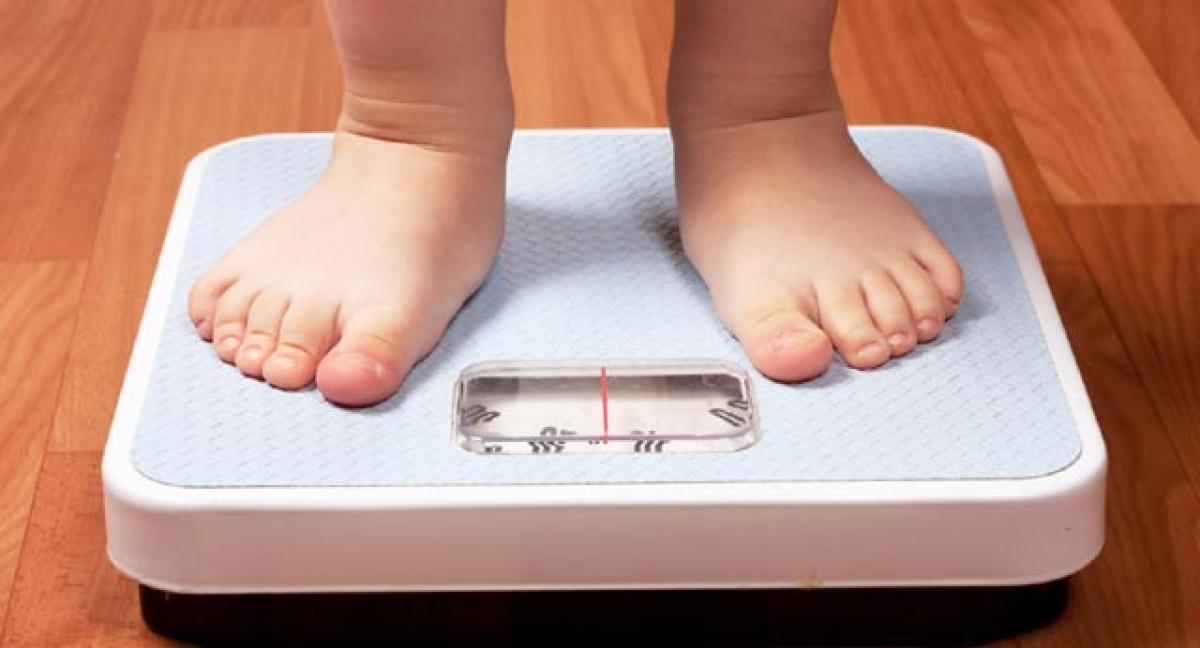Live
- Crisis grips Davanagere farmers despite bumper crop
- NSU probes drug use incident
- Yathindra Siddaramaiah’s statement on judiciary sparks petition for contempt of court
- Initiate steps for implementation of GER: Minister Anam
- Mammootty and Mohanlal to Team Up for Their 50th Film Together
- CAG points out increasing debts during 2022-23
- Youth Commits Suicide in Srikalahasti
- MeT department advises TN fishermen to avoid deep sea fishing
- Scientists decode brain activity that can help treat anxiety and depression
- Madarihat loss sees BJP’s tally in Bengal Assembly down to 66
Just In

Adequate intake of folic acid during pregnancy is likely to protect children from a future risk of obesity, especially those born to mothers who were obese, finds a new study.
Adequate intake of folic acid during pregnancy is likely to protect children from a future risk of obesity, especially those born to mothers who were obese, finds a new study. Folic acid or folate an essential B vitamin reduces the foetus' risk for neural tube defects, which are malformations affecting the brain, spine and spinal cord.
"Maternal nutrition during pregnancy can have long-lasting effects on child health, as well as the health of a mother after pregnancy," said lead researcher Xiaobin Wang, from Johns Hopkins University in the US. The study, published online in JAMA Pediatrics, suggested that adequate maternal folate may mitigate the effect of a mother's obesity on her child's health.
"Folate is well known for preventing brain and spinal cord defects in a developing foetus, but its effects on metabolic disorders, such as diabetes and obesity, is less understood," added Cuilin Zhang from the National Institute of Child Health and Human Development (NICHD) in the US.
During pregnancy, maternal obesity increases the risk for a range of pregnancy complications, such as stillbirth, birth defects and preterm birth, the researchers said.
The findings showed that babies born to obese mothers have long-term health risks, including a higher risk of obesity in childhood. Obese mothers in the study tended to have lower folate levels than normal weight mothers.
Children of mothers who had the lowest levels of folate in the gestation period showed the highest risk of obesity. "This study uncovers what may be an additional benefit of folate and identifies a possible strategy for reducing childhood obesity," Zhang noted.
However, the children of obese mothers with adequate folate levels (at least 20 nm/L) showed a 43 per cent lower risk of obesity compared to children of obese mothers with lower folate (less than 20 nm/L).
Conversely, when folate levels reached approximately 20 nanomoles per litre (nm/L), which is within the normal range for adults, further increases in folic acid did not confer additional benefits, indicating a threshold or ceiling effect.
Establishing an "optimal" rather than "minimal" folate concentration may be beneficial for women planning a pregnancy, especially obese women, the researchers suggested. For the study, the team analysed health records of more than 1,500 mother-child pairs, ranging from two to nine-years-old.

© 2024 Hyderabad Media House Limited/The Hans India. All rights reserved. Powered by hocalwire.com







